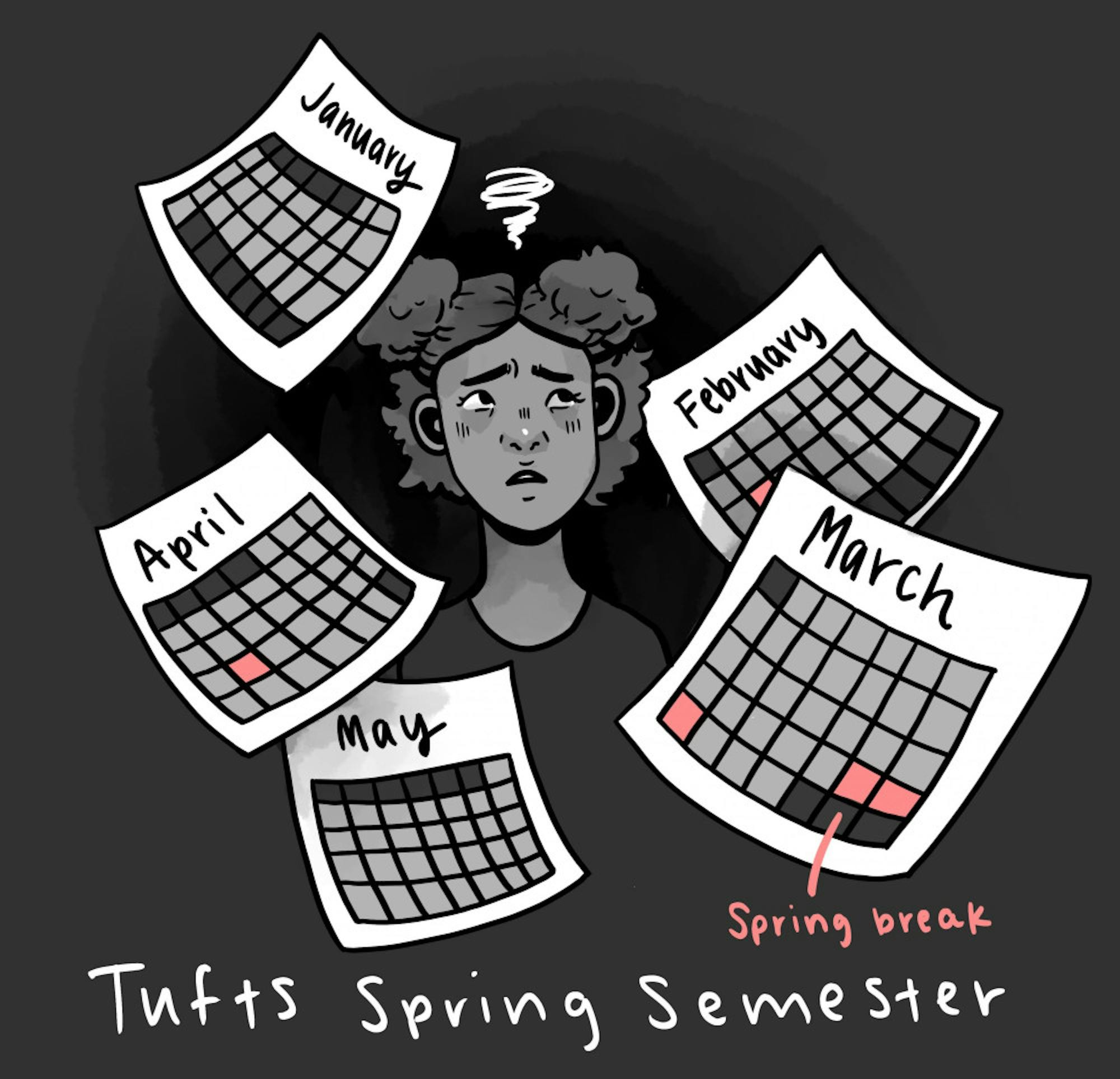The Faculty Senate voted on Friday, Oct. 9 to delay the start date of classes to Feb. 1 and shorten spring break.Students will arrive on a staggered basis between Jan. 19 and 29,granting more time for deep cleaning and the completion of student testing and quarantine requirements before classes begin. Extending winter break will also give Tufts’ staff sufficient time off following months of preparation and hard work under stressful conditions.
According to Dean of Undergraduate Studies Carmen Lowe, spring break will be shortened in order to accommodate for the missed instructional days from the spring term delay. Instead of the traditional nine days, spring break will be reduced to a long weekend with classes suspended only on Friday, March 26.
This plan aims to preserve the health and well-being of the Tufts community; however, sacrificing a longer spring break will negatively affect the mental health and academic performance of Tufts students. Tufts should reassess breaks within the spring semester schedule in order to provide students with sufficient time off and mediate community stress.
As experienced this semester, hybrid learning poses many challenges to academic success. Normally landing in the middle of the semester, spring break occurs when students feel the heightened stress of rigorous academics and midterm exams, desperately requiring time off. For some, spring break gives time to catch up on school work or prepare for exams; a shortened spring breakwill mean too little time for students to properly breathe, reset, study and become ready to face the rest of the semester. Inadequate time off will certainly lead to burnout and mental health consequences for some community members.
A limited break will also adversely affect remote students’ mental health as they may lack adequate academic resources and have no option but to learn in an unconducive environment. On top of unfavorable academics, remote students can feel isolated and stressed without the usual outlets to socialize and decompress. Taking away a much-needed break only adds to these stressors as students must sacrifice their mental well-being in order to keep up with a condensed timeline and workload.
Additionally, suspending classes on Friday does little to help students and faculty recuperate; many classes do not meet on Fridays. The decision to replace a traditional one-week spring break with a long weekend does not account for these concerns and must be addressed by the Tufts administration.
They should consider shifting the current spring break schedule and designated vacation days to prioritize students’ mental health and academic success. Suspending classes on Monday, March 29 instead of Friday, March 26 would alleviate students' workloads while still accommodating for lost instructional days. In addition, Tufts should shift the Presidents Day break held on Monday, Feb. 15 to later in the semester when classwork and assignments increase.
Tufts' scheduling constraints are valid but do not have to prevent the administration from prioritizing community wellbeing. Health is both mental and physical, and the academic calendar is not immutable; especially during this unpredictable time, any scheduling precedents can and must come second to properly balancing academic continuity and health.






